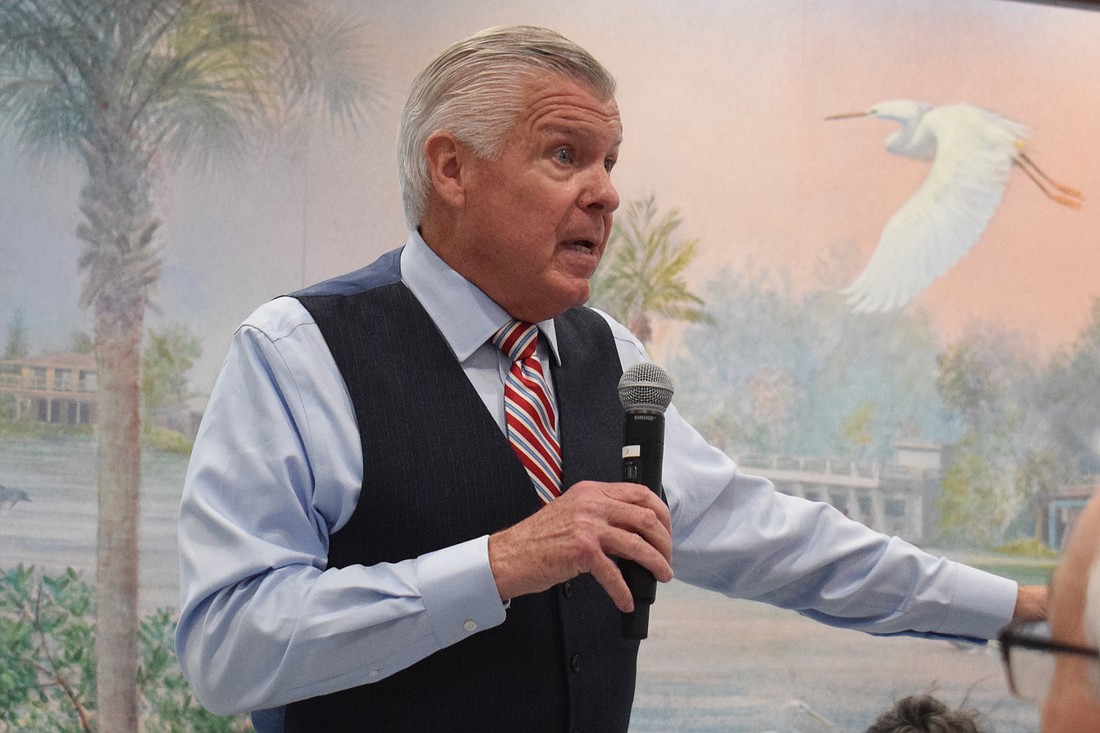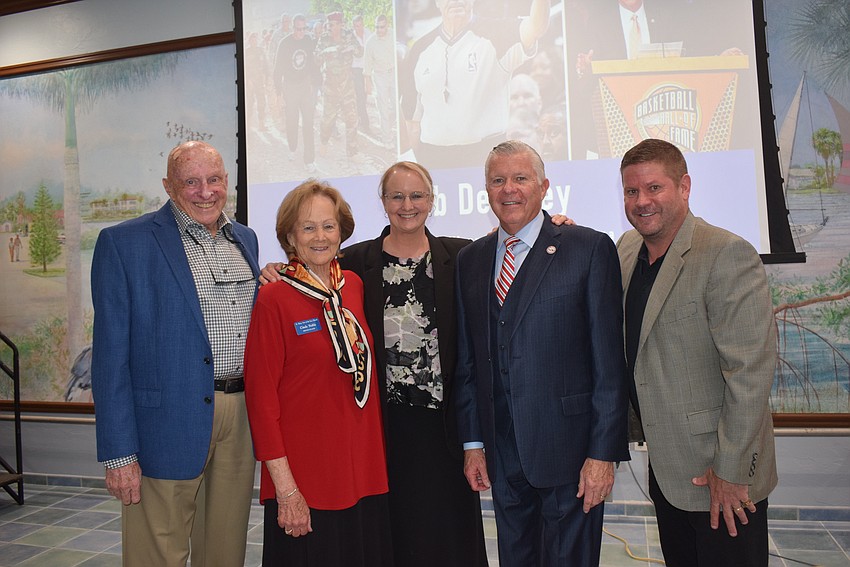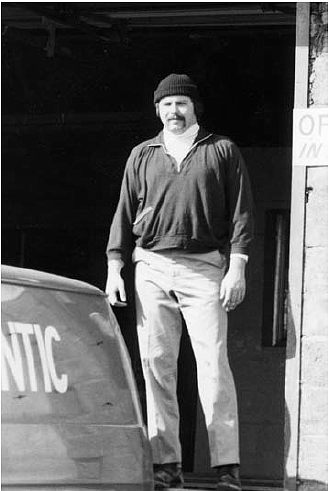- May 1, 2025
-
-
Loading

Loading

As former New Jersey state trooper Bob Delaney prepared to testify in court after infiltrating the New Jersey Mafia, the prosecutors stopped him.
“I had my leather coat, a chain around my neck and a pinkie ring on,” said Delaney. “They told me, ‘We can't put you out there like this. You look more like them than they do.’”
After spending three years posing as a New Jersey mobster, Delaney had become his undercover alter ego, Bobby Covert. It was hard for him to distinguish where Covert finished and he started. This led to him experiencing post-traumatic stress disorder once the case was finished.
Now, years later, Delaney travels the world speaking about how he turned to NBA refereeing to help navigate his PTSD and then helped those who struggle with it too. Delaney spoke on Feb. 6 to St. Mary Star of the Sea Catholic Church. The Women’s Guild organized a Valentine’s Day-themed dessert meeting for the occasion.
“Bob has won numerous awards,” said Guild President Cindy Noble. “He received the President's Volunteer Service Award from President Obama, the U.S. Army outstanding civilian service medal, the NBA Community Service Award and a National Association of Sports Official Gold Whistle award. He's demanded as a speaker all over the country and abroad about his insights into leadership, PTSD, management and self-care. His message is that we are not alone, that we can find hope and sharing ourselves with others is transformative.”

Delaney followed in the footsteps of his father and became a New Jersey state trooper in 1973. After playing basketball throughout his life, he originally thought he would be a high school basketball coach but in college he felt a desire to serve.
Delaney worked in several different counties as a state trooper before getting a mysterious note from Lt. Jack Liddy from the criminal investigation section of the organized crime bureau. This frightened Delaney, thinking he was in trouble, but his colleagues assured him that he probably was needed to gather information on a case connected to one of his tickets.
“After a period of time, the lieutenant said to me, ‘Are you interested in doing undercover work?’” said Delaney in his talk. “I said ‘Yes, sir. What is it? Drugs? Narcotics?’ He said, ‘If you keep asking questions, you're gonna be out of here running.’ Over the next three weeks, I learned that the President's Organized Crime Task Force out of Washington, the F.B.I. and New Jersey State Police were joining forces and we're going to start our own trucking company on the waterfront in New Jersey. I became one of those undercover guys. It was myself, another state trooper and three FBI agents.”
He was told that his undercover mission would be six months but it turned into three years. Becoming Covert, the president of Alamo Trucking, helped him gain the trust of the Bruno and Genovese crime families. Not only did he buy and sell stolen merchandise with them, he became one of them — he went to dinner with them, played softball with them and met their families. During this time, Delaney wore a wire to tape every conversation. After years of gathering evidence this way, the case closed in 1977 with the arrest of about 100 Mafia members.

“One guy said to me, ‘Bob what did they pinch you for?’” said Delaney. “Before I could answer, one of the troopers said for me, ‘We didn’t pinch him. He's with us.’ The look that he gave me, it wasn't anger. It was disappointment. It was ‘Bobby, you're my friend. How could you do this?’”
Delaney started his 25-year career as a referee in high school and college basketball games. He worked up his way to becoming an NBA referee working closely with big names such as Michael Jordan and Kobe Bryant. He then became the NBA vice president of referee operations and director of officials for five years.
“Basketball was my therapy,” said Delaney. “Basketball reaffirmed to me all the things that were good in our society because I was dealing with all this bad as Covert.”
Delaney has written three books, “Covert: My Years Infiltrating the Mob,” “Surviving the Shadows: A Journey of Hope Into Post-Traumatic Stress” and “Heroes are Humans: Lessons in Resilience, Courage, and Wisdom from the COVID Front Lines.” He has lived in the area full-time since last March. For the past 40 years, he has been working with federal and state law enforcement officers, firefighters, military, first responders and their families to help them navigate through their PTSD.
“It's about getting some of it out to let you be lighter, to be able to handle it and be able to function,” said Delaney. “It's not about ending post trauma. It's about learning how to navigate and live with it.”